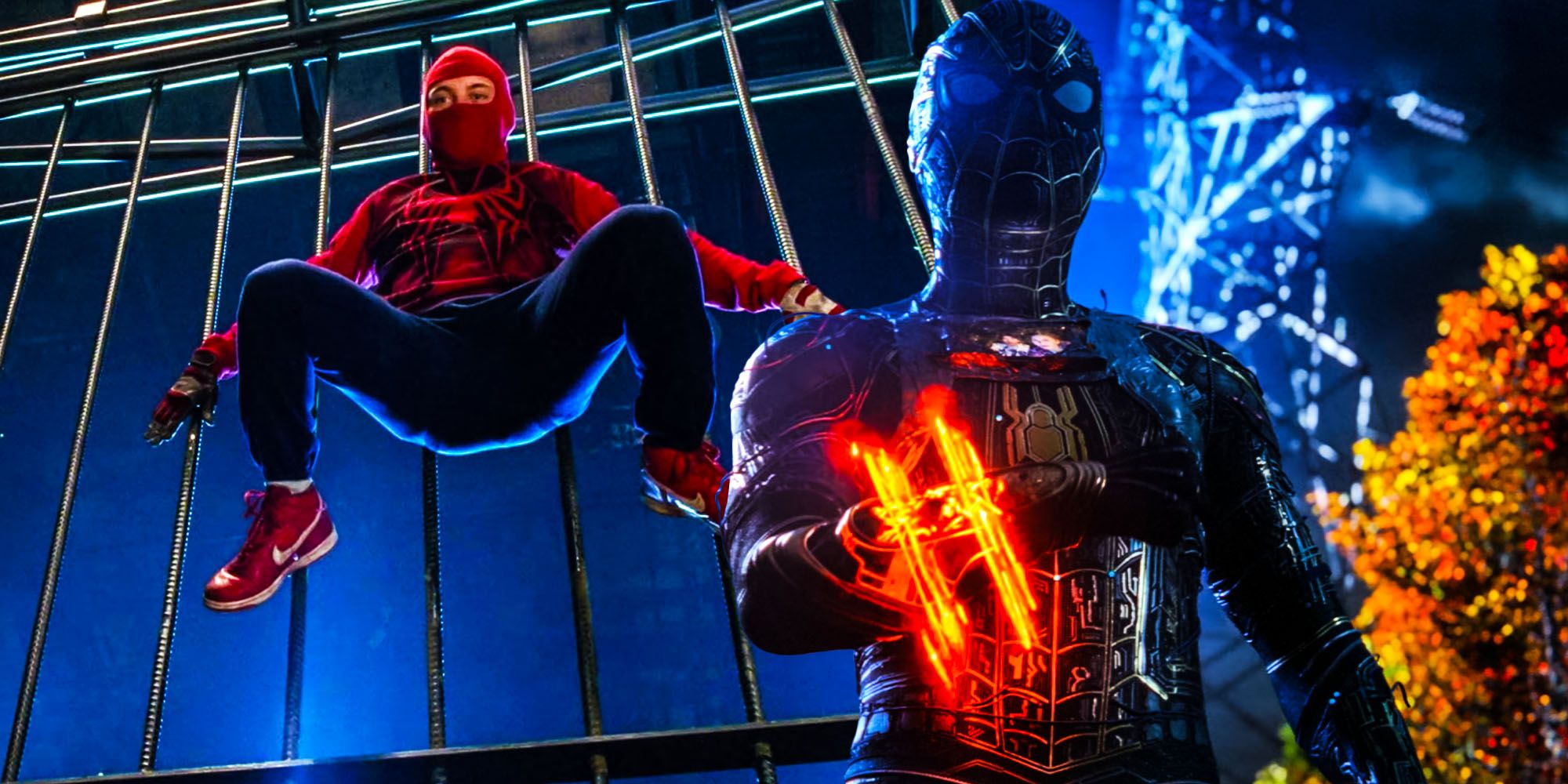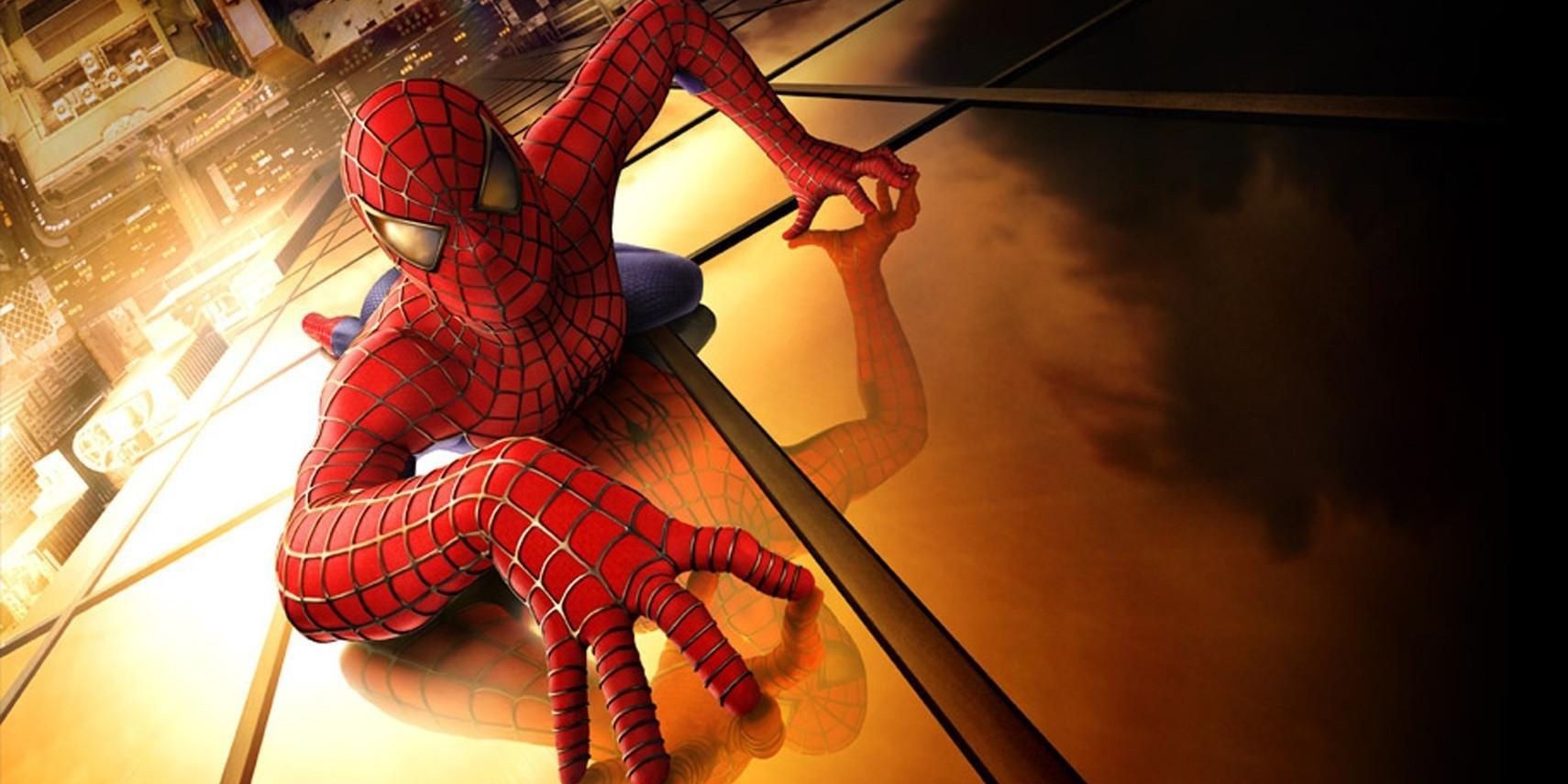Spider-Man 2002 Audience Reactions Show How Much Has Changed

Caution: Spoilers ahead for Spider-Man: No Way Home.
Audience reactions to 2002’s Spider-Man are drastically different compared to those of 2021’s Spider-Man: No Way Home, showing how much the theatergoing experience has changed in almost 20 years. Footage from a May 2002 showing of Sam Raimi’s beloved superhero film shows a tamer set of reactions to some of the film’s key moments. With audience reactions to No Way Home’s biggest surprises being notably lively, one can see how certain details in comic book movies were treated differently before the genre became the pop culture juggernaut that it is today.
Sam Raimi’s celebrated Spider-Man changed the superhero film landscape. With an unprecedented focus on blending realism with comic book fantasy and an unapologetic earnestness, the film raised the standards for superhero comic adaptations and cleared the way for similar adaptations of Marvel Comics characters, eventually resulting in the Marvel Cinematic Universe, which itself changed the tentpole film landscape with 2012’s The Avengers. Although the Infinity Saga ended with Avengers: Endgame, the MCU proves that it’s still as strong as ever with No Way Home, a massive critical and commercial success that tied all three cinematic eras of Spider-Man together.
Footage from Spider-Man’s opening week shows audiences reacting to specific moments from the film. There is subdued laughter at the film’s many comedic moments and some light applause at the introduction of characters like J. Jonah Jameson. By contrast, audience reactions to the surprise character reveals in No Way Home were far more intense. Theatergoers shouted and cheered for the triumphant reappearance of Andrew Garfield and Tobey Maguire’s iterations of the web-head, and there were similar reactions to Matt Murdock’s surprise cameo. As the MCU has grown in popularity the films have started to garner stronger reactions among viewers.

In 2002, the superhero film genre was rather niche, with massive pop culture icons like Superman and Batman being the source of successful film franchises, but few other heroes meeting the same success. Blade and X-Men performed well, but it was almost despite their comic book source material. Spider-Man helped build the modern superhero film, making comic-accurate depictions of superheroes appeal to both general audiences and die-hard fans. Thanks to both Spider-Man and the MCU, what was once a niche genre is now one of the most mainstream film categories.
If Spider-Man was released in today’s cinematic climate, audiences would have reacted quite differently to certain scenes. Viewers would have cheered with joy over J. Jonah Jameson’s introductory scene and the unveiling of Spider-Man’s suit in the crime-fighting montage. Comic Easter eggs, like the mention of Eddie Brock and the Green Goblin’s comic-accurate death, would have likely elicited whoops and rounds of applause as well.
The MCU has familiarized general audiences with comic book lore and concepts that were once considered non-mainstream. With over a decade of crowd-pleasing films, the franchise has also built a rapport with viewers, making payoffs like the Time Heist and act 3 battle in Avengers: Endgame draw cheers from viewers simply for referencing other MCU films, not their comic inspirations. With a far more general audience and with comic book superheroes now a mainstream film genre, reactions to No Way Home were far more intense than they were for 2002’s Spider-Man.
from ScreenRant - Feed https://ift.tt/3EDSQsM
via Whole story

Post a Comment